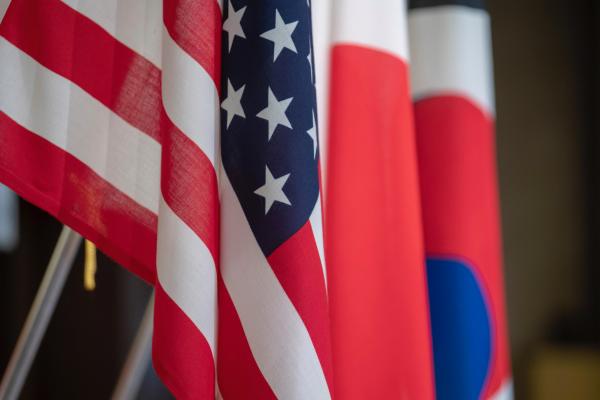Pity Donald Trump. He spent four years in office tearing up trade agreements and ranting about rewriting old ones, all to little avail. Now, a key U.S. climate law is doing more to change the dynamics of international trade than any blustering and bullying ever did.
The Inflation Reduction Act has been hailed as a win for domestic producers of minerals that are critical to electric vehicles and other hallmarks of the decarbonized economy. The most impactful so far have been the provisions that require a minimum amount of domestic sourcing and processing to be eligible for the $7,500 EV tax credit. That language alone has spurred tens of billions of dollars of investment in the U.S. battery supply chain.
But there’s no way the U.S. can produce all that’s needed — the country simply doesn’t have enough reserves, while China has a lock on many parts of the market. So the law also includes a handy loophole qualifying minerals from countries with which the U.S. has a free trade agreement. The law already qualified “North American” suppliers, and the free trade language opens the door further.
Late on Monday, the door opened a little wider as the U.S. and Japan announced a trade deal encompassing cobalt, graphite, lithium, manganese and nickel, all minerals that are key components of EV batteries. The agreement opens up both markets to new supplies of the minerals, allowing battery manufacturers and automakers to benefit from the IRA’s minerals requirement.
For now, Japan is the only country to successfully negotiate a new agreement in the wake of the IRA, but it probably won’t be the only one. The EU, which has made no secret about its displeasure with the new law, is also in talks with the U.S.
In the seven months or so since the IRA was passed, the global landscape for critical minerals and battery manufacturing has changed rapidly, and a potentially steady stream of new free trade agreements promises to keep things fluid. For founders and investors alike, that injects a fresh dose of uncertainty.
For founders, the risks are pretty clear: Their products or services are now up against a new slate of competitors. In the first few months following the IRA, there wasn’t a gold rush, per se, but there was a surge of renewed interest in various minerals projects and approaches in the U.S. and Canada. With the tent expanding, founders may want to revisit their pitch if it’s too focused on domestic supplies.
For now, mining companies won’t have much to worry about, given Japan’s relative paucity of terrestrial natural resources. The situation might change if the island nation gets serious about deep sea mining, though the technical challenges and environmental concerns are significant enough to push that further into the future.
But minerals processing startups — the sort that refine raw minerals into precursors or cathode and anode materials — will want to ensure their technology is sufficiently portable and not too dependent on quirks of the North American market. Cracking the Japanese market isn’t easy, but if an EU deal takes shape, it could offer new opportunities for growth in addition to introducing new competitors.
Battery recycling startups are likely to flourish under the new regime. Battery contents are pretty much the same everywhere — if you know the specific type of cell, you can be certain about what’s inside. That should mean that their technologies can readily move from market to market. And because shipping batteries is prohibitively expensive, the market for recycling won’t get concentrated in one country or another.
Investors should be wary of entertaining pitches from startups that are too dependent on the “Made in America” label. Core technologies should be as agnostic as possible, able to nimbly move from one market to another. Ideally, they wouldn’t be too tethered to one particular market, flexible enough to work with different feedstocks and supply chains. Perfect portability is preferable in any vertical, but mining and minerals processing has unique challenges that make that particularly difficult. No startup will be able to address every need, but they should be sufficiently broad so as not to be broadsided by geopolitical shifts.
When the Inflation Reduction Act was first signed, many thought it was tailor-made to boost American manufacturing. And it is! But it also has a bigger target: China. China has spent much of the last 15 years locking up foreign supplies while simultaneously overbuilding refining and processing capacity at home. That’s made it hard for other countries to compete.
Now the U.S. is striking back, forming a series of bilateral agreements that promise to create an interconnected and stable base for the decarbonized economy. A new “arsenal of democracy,” if you will, only this time, the enemy is carbon.
